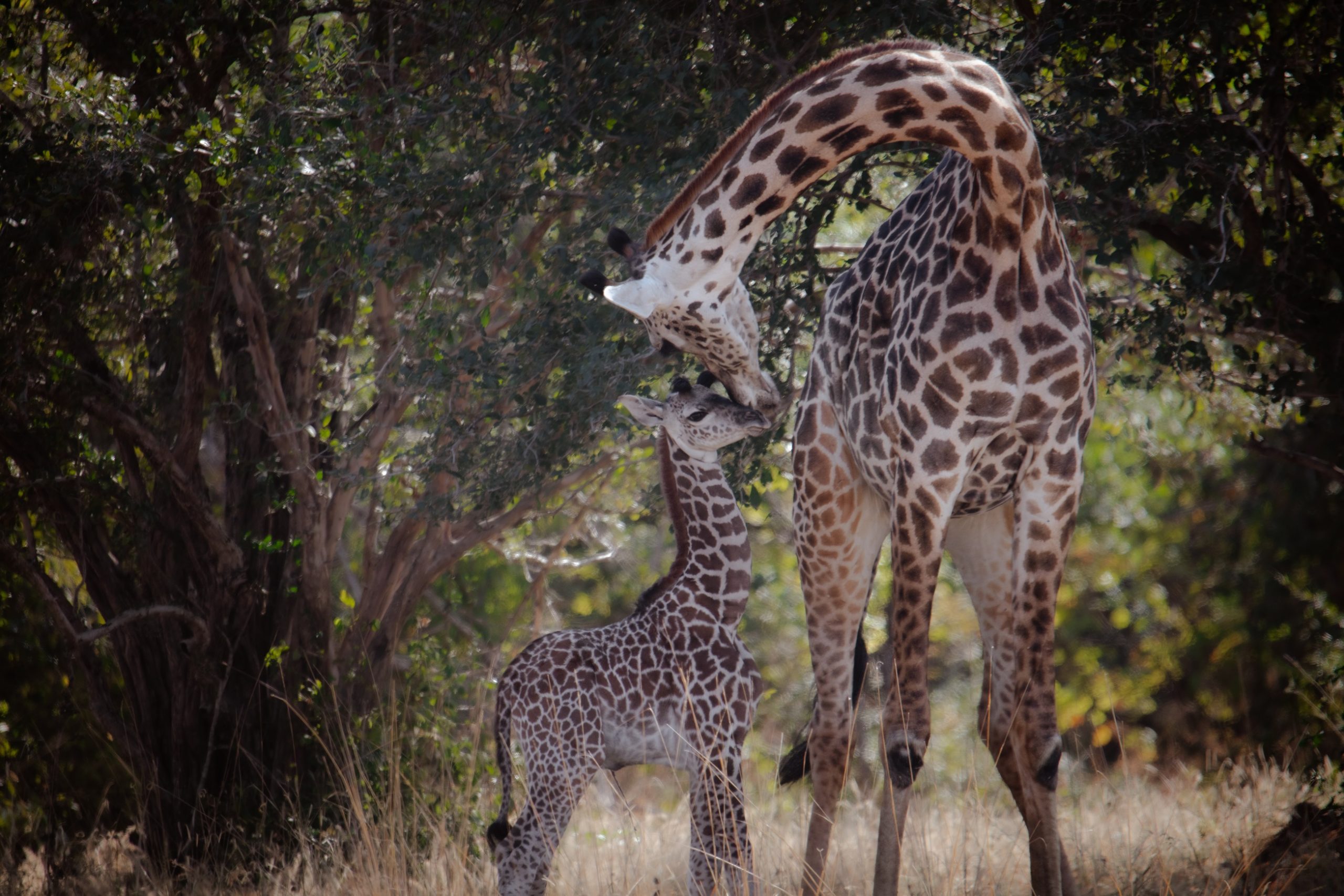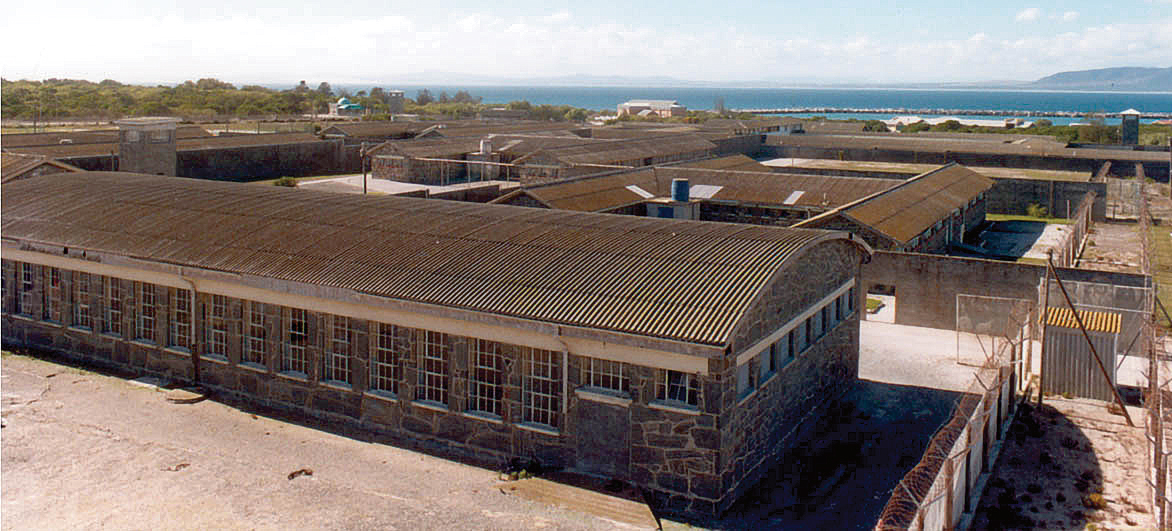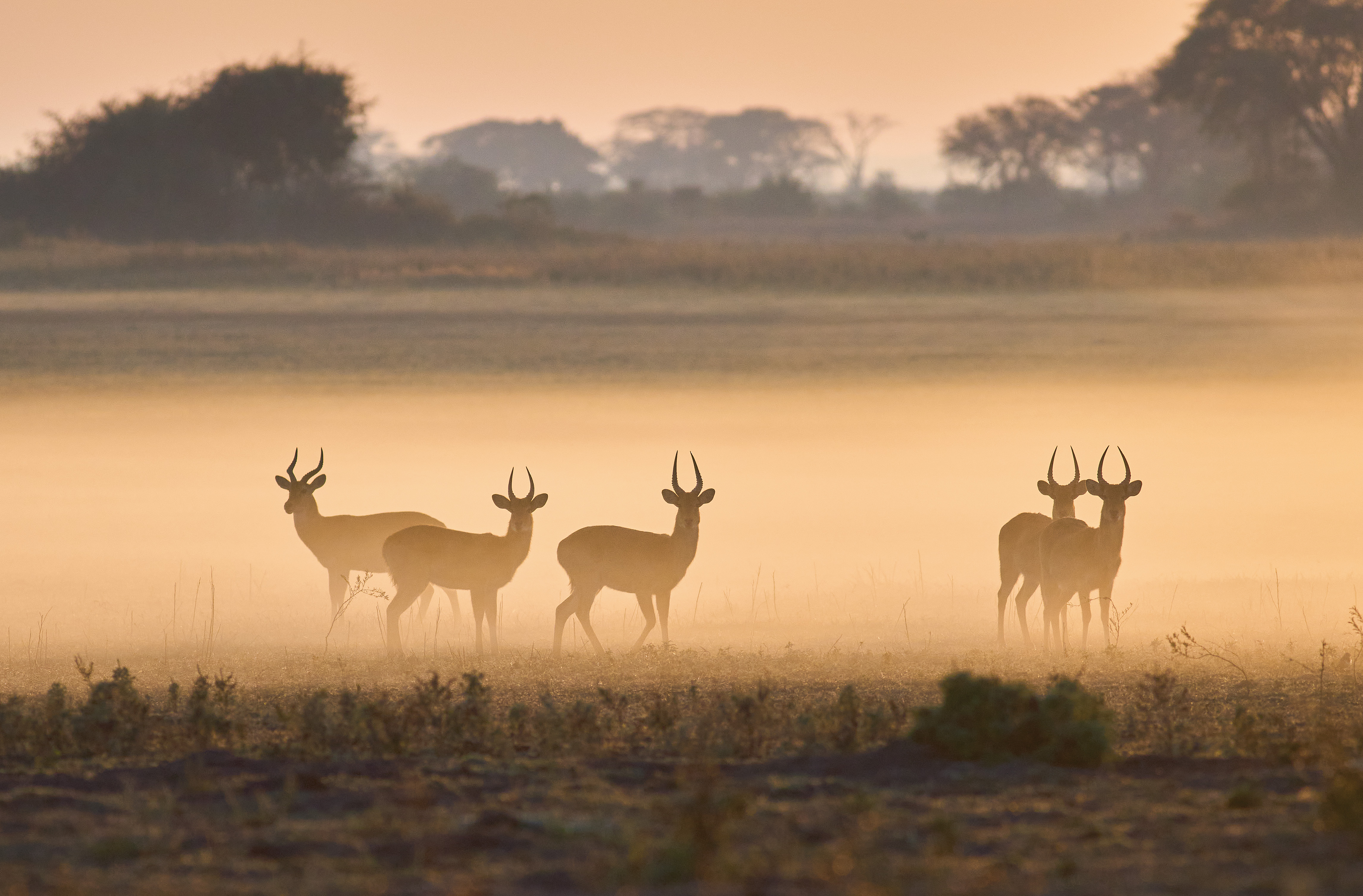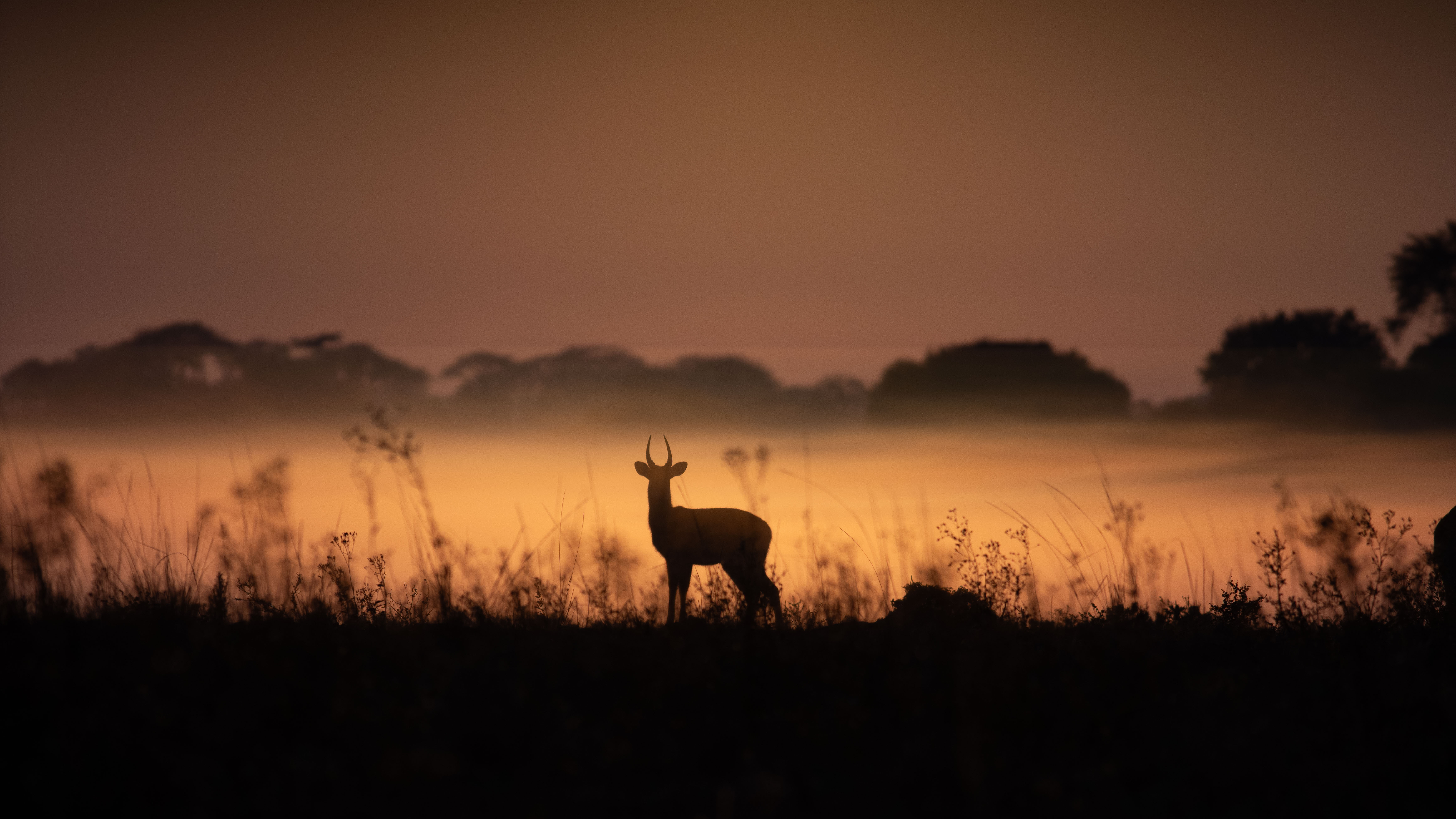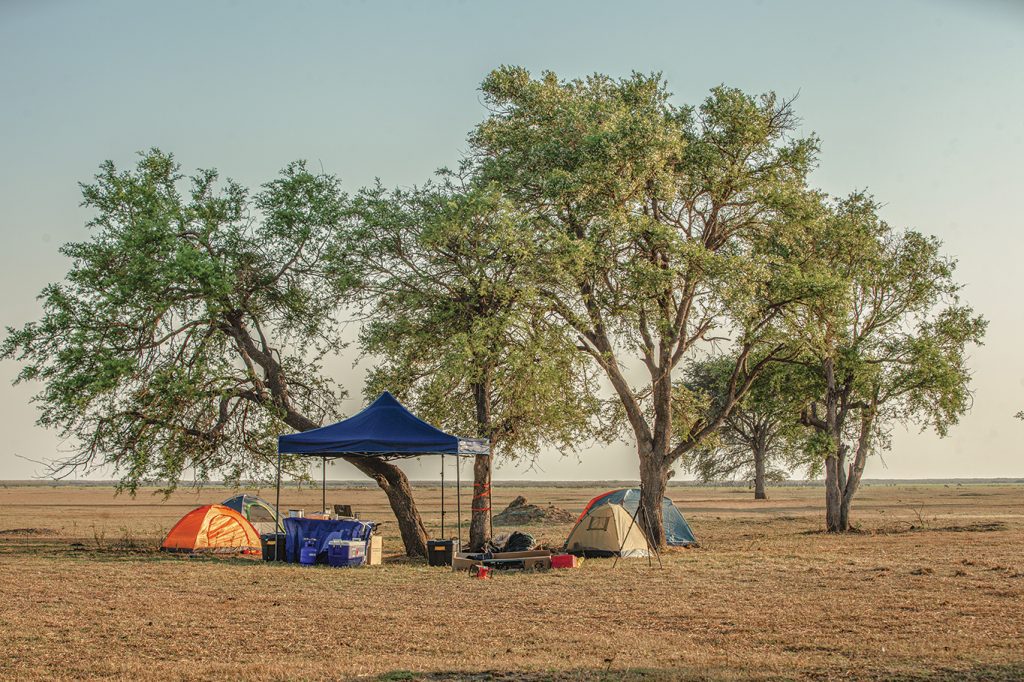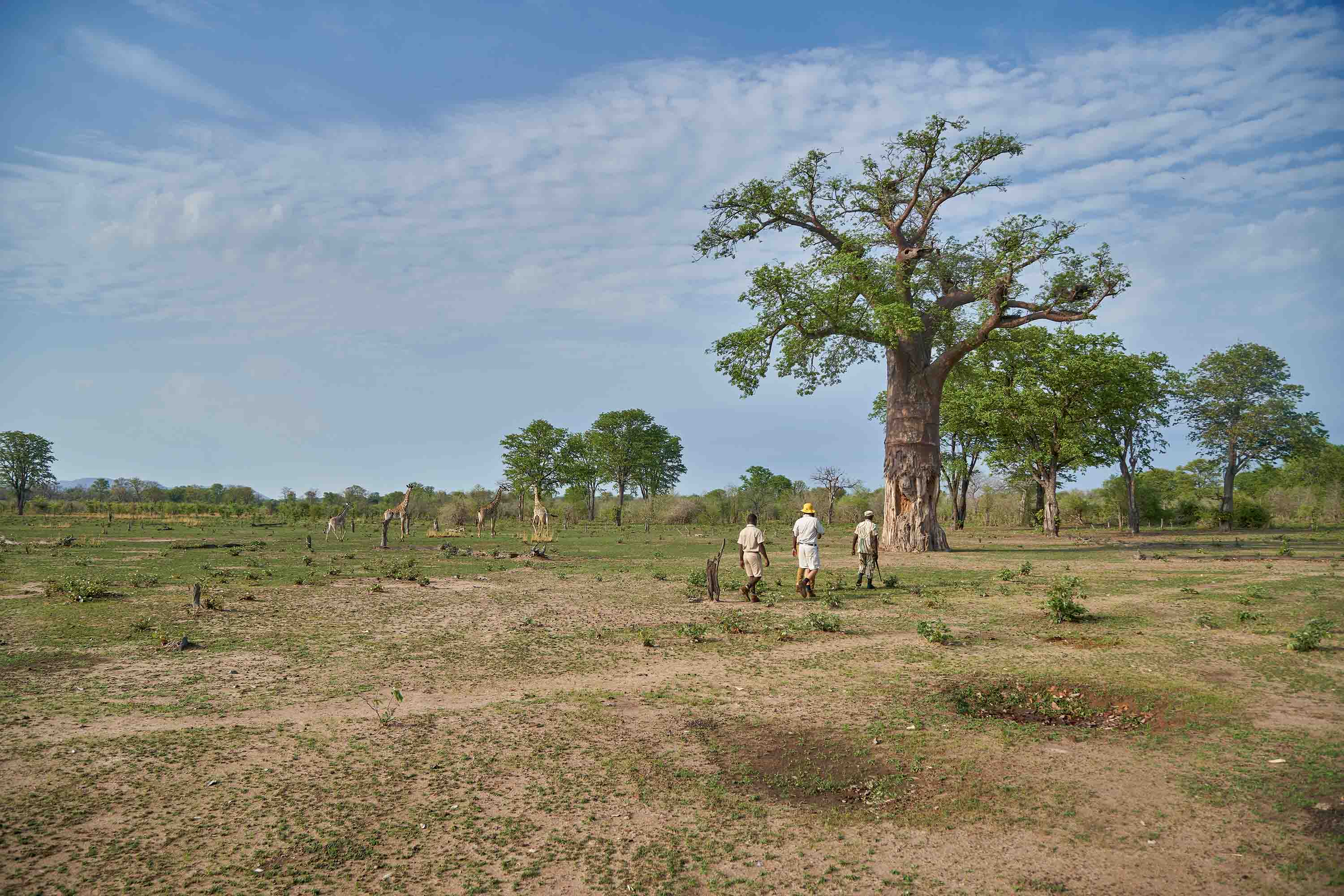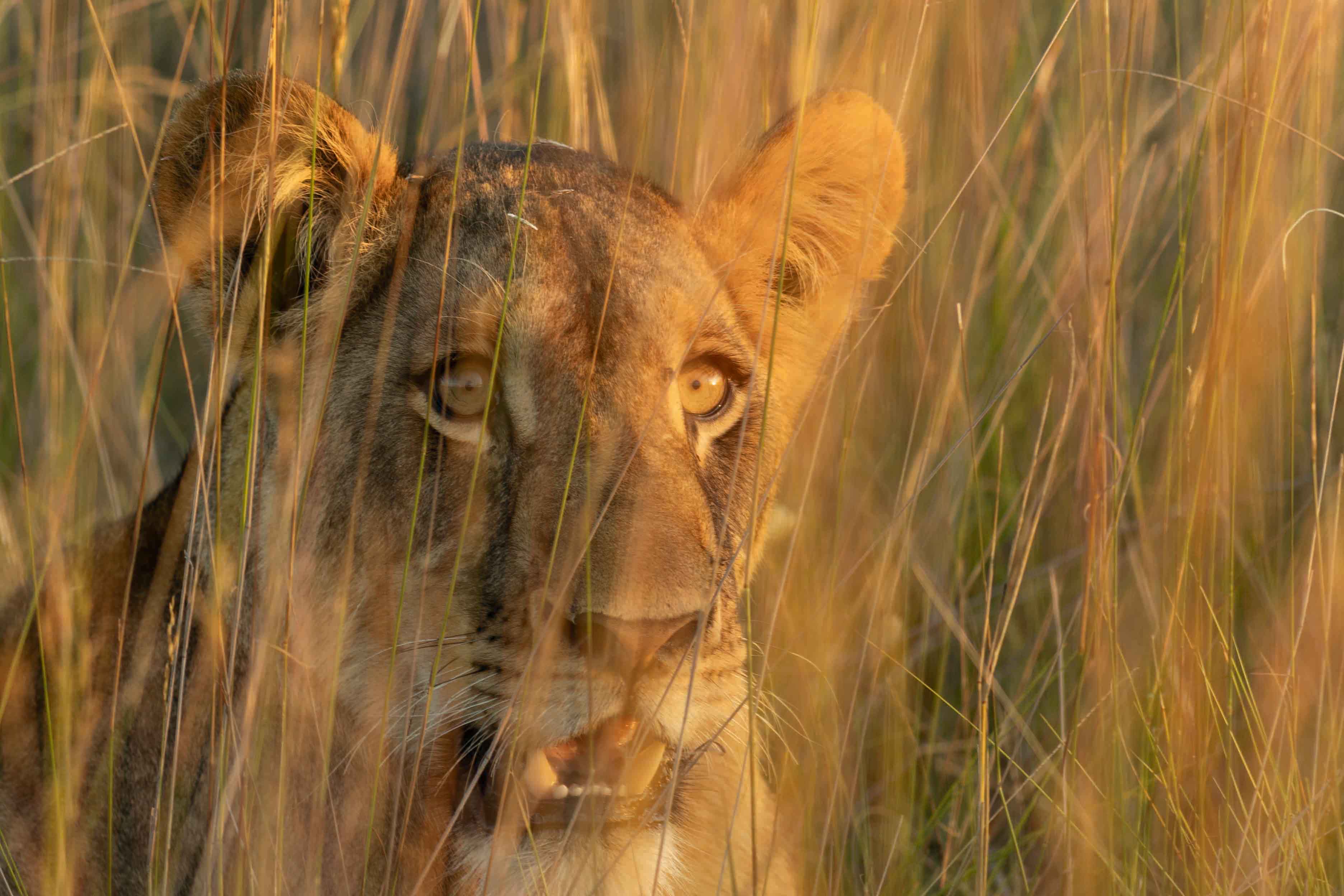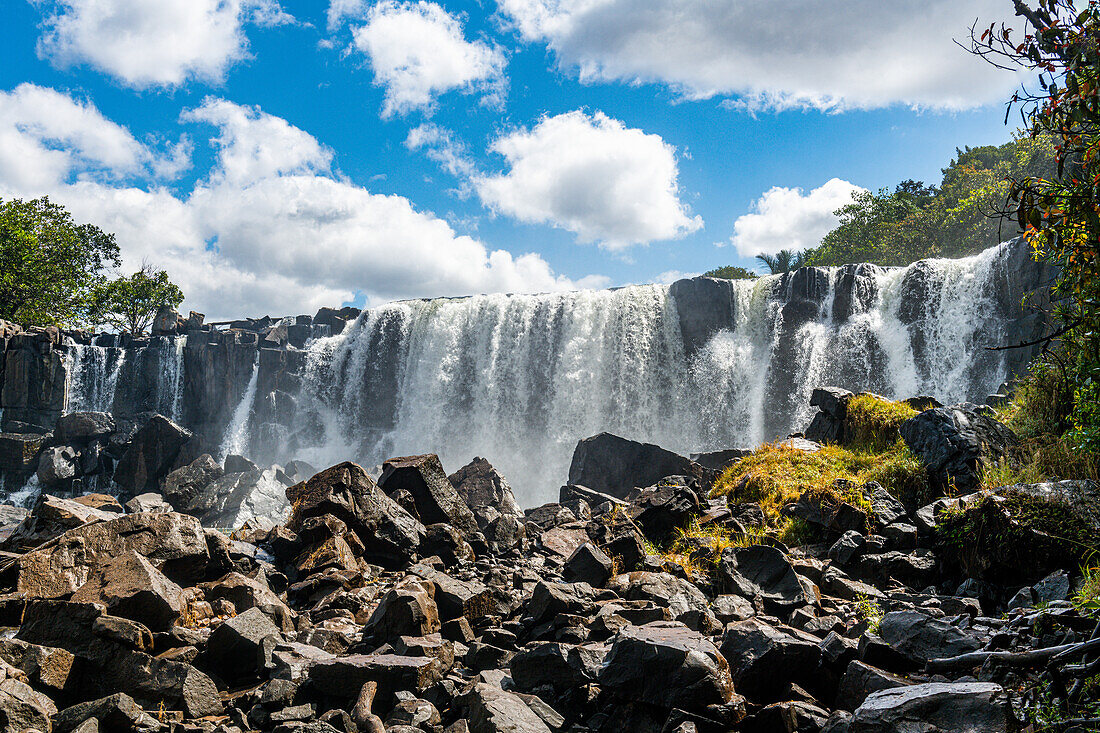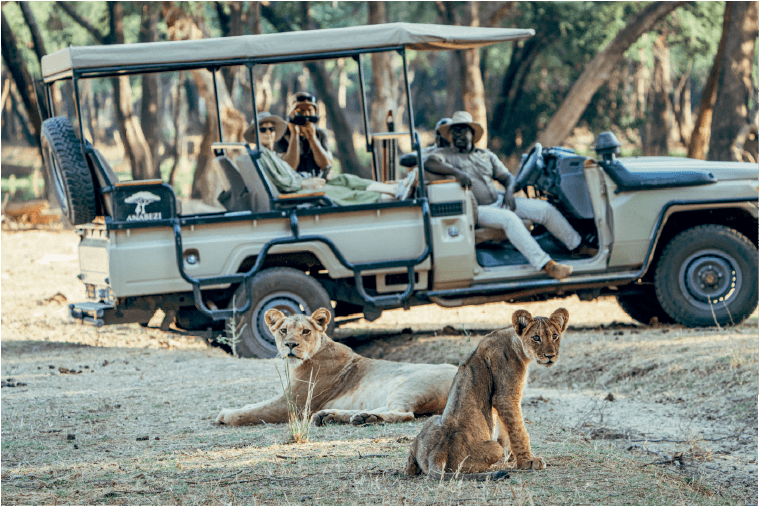I always feel a sense of euphoria before setting off on an adventure; my inner child awakens to the possibilities of what may lay ahead. Growing up, I regularly played Indiana Jones and tried to explore nearby seasonal water streams and the lush jungle which covered the mountain range that surrounded my town.
I was joined by my videographer friend, who insisted on documenting every aspect of our trip. Our mission was simple; show the readers what they are missing! A task that would prove a little more difficult in the end, for how could you summarise a place like the Luangwa Valley.
On the morning of our trip, our excitement was hard to control. Our 08:15 Proflight flight couldn’t come sooner, a seamless check-in and morning coffee at the makeshift café in the Lusaka domestic airport to warm us up, and we were ready to start. The smooth flight took an hour and fifteen minutes to arrive at the charming Mfuwe Airport, where David, our designated guide for the trip, greeted us.

A short 45-minute ride through the quiet town of Mfuwe revealed surprising gems around the national park, each with their own unique story to tell, their very existence crucial to the Mfuwe community. An area we will explore later in this article.

We arrive at Kafunta River Lodge in time for our breakfast, a quick introduction and a thorough safety briefing by Lisa, the lodge manager, before heading to our thatched chalet to unpack and prepare for the first of many game drives.
The Morning Game Drive
It is well-known that animal sightings during game drives are a pure game of chance; you are either in luck or out of it. The South Luangwa National Park’s uniqueness is its ability to increase your odds of sighting rare animals. Its raw and undisturbed nature makes it a premier destination for international film crews and wildlife documentary makers.

I often take trips to various national parks around Zambia, not solely enjoying the serenity of the beautiful nature but also feeding my passion for wildlife photography. Over the years, I have been lucky enough to witness some of the most unbelievable sightings while on game drives. And this trip would prove no different.
The morning drives almost felt choreographed. The sheer quality of animal sightings was nothing short of spectacular. Most animals congregated in and around water lagoons, which were remnants of the heavy rainy season. We witnessed pods of hippos lying in the water, enjoying the protection the water cabbage offered from the morning sun. Yellow-billed storks that masterfully picked off small fish, pied kingfishers artfully hovering above their unsuspecting prey, waiting for the right moment to make their move, and large crocodiles were basking in the sun to raise their body temperatures.

In other drier locations surrounding the Luangwa River, we spotted a baby giraffe suckling from its mother and herds of elephants crossing the dried floodplains. We watched warthogs and notoriously naughty baboons working together to dig up edible plant roots, a pride of lions taking a morning nap after a long night of hunting. We were fortunate to have witnessed a brave lone hyena approaching a leopard to inspect whether the solitary cat had a kill it could steal.
There was never a dull moment. The sheer number of animals present at that time of day was purely astounding.
The Afternoon/Night Game Drive

The afternoon/night game drive was my absolute favourite; I prefer to witness the potential action that is usually prevalent at nighttime, after all, it’s when the apex predators are generally active. Other advantages to doing game drives in the afternoon are the cooler temperatures and the jaw-dropping sunsets you get to witness on the banks of the Luangwa River, and of course, the cold sundowners offered by the lodges.
With the sunset complete, our senses and expectations heightened, and the air grew thick with anticipation. Catching an apex predator going for a kill was the ultimate safari prize. Our spotter Robert, scanned the surrounding area with his powerful spotlight, looking for reflective red eyes in the distance (most predators’ eyes reflect red).
As we drove around, Robert spotted many other nocturnal animals such as genets, scrub hares, and bush babies grazing and foraging for food. We hit the jackpot when we spotted a stealthy leopard observing a herd of impalas grazing at night, who later disappeared into the gullies, no doubt bothered by the attention he was getting. The nighttime noises and darkness make the search for predators exponentially more exciting than the daytime.

We spent a few more hours driving around at night looking for action until it was eventually time to head back. On the way back and as we approached the lodge, our spotter using his powerful light, spots an animal in the distance, a shy aardvark crossing the trail into the thickets, a special treat indeed! Aardvarks are notoriously shy and rank amongst the most challenging animals to see. David, a guide of 30 years, was only seeing it for the 3rd time. Sadly I was unable to photograph the creature in time.
The following day, Izzy, the lodge’s marketing manager, was in disbelief over our sighting of the aardvark. She later informed us that even the legendary Norman Carr, who had spent most of his life in the Luangwa Valley, had never seen one. Again, the adage “the valley never disappoints” stood true.
Walking Safari
The walking safaris in the Luangwa are a real treat and a wholly different and exhilarating experience. We embarked on ours under the watchful and experienced eyes of an armed DNPW ranger and David, who happened to be a fully licensed walking safari guide. We started our 6-kilometre walk in the early morning hours to increase our chances of capturing one of the big cats up close.

“You only need to remember three words – do not run!” said David. Standing firm seemed to be the trick to ward off any possible threats. Throughout our walk, David educated us on the numerous footprints and droppings the different animals left behind.
Perhaps the most exciting thing we learned was the ability to differentiate between the many antelope species based on the prints their hooves left in the soft sand. Another interesting trick was learning the ability to determine whether the prints were recent or not—an ability previously used by hunters in the area to help in estimating their prey’s distance.
While we weren’t lucky enough to capture any of the big cats we were hoping for, during our walk back, we happened to run into a small herd of elephants drinking water from a secluded watering hole, an unforgettable experience.
The Night Sky (A Special Request)
That same night, we had requested permission from the Lodge to be taken out to a dark site far away from the grasp of the lodge’s faint lights, a consent they happily granted.

No bush experience is ever complete without an opportunity to spend an hour or two under nature’s most spectacular light show. With the Milky Way at its zenith, it was hard not to seize the opportunity to take a few long exposure shots under the watchful eye of our guide. Seeing the night sky as our distant ancestors did is truly a privilege. It’s hard to believe that the ever-present intricate night sky is seldomly ever seen in its full majesty.
Around Mfuwe Town (The Community)
While the primary reason one would choose to visit the valley would be to experience the wildlife and excellent safari excursions, it is worth noting that this luxury exists because of the Luangwa Valley’s community that constantly works together to make visiting it a reality.

The community, comprised of every individual and business that calls the Luangwa home, is truly admirable. Their dedication and ability keep all the wheels turning despite their many challenges. Their stories are even more remarkable.
The Bush Spa
No trip to the Luangwa valley is complete without visiting the Bush Spa. Set in the beauty of the indigenous Zambian bush, the Bush-Spa located in South Luangwa National Park creates a sanctuary of pure simplicity for those seeking tranquillity and rejuvenation of mind, body and soul.

Perched on a secluded wooden deck atop a lagoon overlooking the permanent hippo residents beneath it makes it a memorable experience. The constant grunts and gurgles of the hippos provide a unique soundtrack to your treatment.
The Bush Spa uses all-natural Zambian ingredients to make the oils/balms and products used in their therapies. I went for the Heart of Africa Energizing Balm Massage, simply Zen. Stella, the therapist, even managed to put me to sleep within minutes of starting the treatment.
We had the privilege of meeting with Nathalie, who founded the Spa two decades ago; she explained that all therapists on duty originate from the community and are trained in-house.
The Bush Spa has received International Spa awards and numerous nominations; Nathalie was voted Best Spa Manager and Best Entrepreneur in Zambia.
Tribal Textiles
Located in Mfuwe town, about a 15 min drive from the national park gates, is Tribal Textiles, a home décor company. Tribal Textiles works to create sustainable impact through creativity and craftsmanship by going beyond fair wages, reinvesting in community-strengthening initiatives, and supporting local wildlife conservation.

The bright, colourful and unique hand-painted African textiles with traditional or contemporary African designs are inspired by the rich culture and wildlife of Zambia and Southern Africa: throw pillows, bedding, table linen, wall decor, bags and accessories and even kid’s textiles. They have it all!
Visitors can also create their custom designs with the support of experienced craftsmen and women employed by Tribal Textiles. I took the opportunity to draw a custom design for a pillowcase under the guiding eye of the helpful staff, and my wife loved it. A portion of all proceeds is diverted towards conservation efforts in the valley.
Located within the Tribal Textile premises is Dorica’s Café; Dorica is a phenomenal self-taught chef who serves delicious international cuisine, from samosas to bagels to iced coffees and flapjacks. I had the vegetarian burger but can wholeheartedly attest to the chicken schnitzel based on my colleague’s face. A spot not to be missed!
Project Luangwa
Founded and chaired by Jo Pope, Project Luangwa is a charitable organisation formed by several safari operators in the valley. The Project Luangwa store sells many artisanal products such as hand-sewn bags, wood crafts, traditional clothes, etc. The heart of Project Luangwa is the belief in empowering communities through the benefits of tourism.

On establishing Project Luangwa in 2010, some of the valley’s tour operators realised the need to empower communities and show the incredible benefits that wildlife and an unspoiled habitat bring to the region. By using a portion of the proceeds from each visitor, Project Luangwa seeks to reaffirm the importance of tourism in action. Project Luangwa strongly believes in improving health and education standards, providing a platform to help raise rural areas out of poverty.
Mulberry Mongoose
Experience a unique shopping experience at Mulberry Mongoose. With an in-house open workshop where local craftswomen use snare wire recovered from poaching traps to create unique jewellery designs inspired by the African bush. Like many others, my wife has always been a fan of their work, a store not to be missed.

Kate and the team of ladies do a phenomenal job of converting what was meant to kill wildlife into artisanal and exquisite pieces of jewellery that people worldwide enjoy. Mulberry Mongoose uses part of the proceeds to give back to anti-poaching and wildlife efforts. It doesn’t get more African and more unique than Mulberry Mongoose.
Meet Real-Life Heroes
Benson Kanyembo: Rarely in life are you accorded the honour of meeting real-life heroes like Benson Kanyembo, whose immeasurable contributions to conservation are known globally. His passion and dedication to wildlife protection against all the odds during a career of nearly three decades is commendable.

Benson leads all Conservation South Luangwa anti-poaching law enforcement and wildlife operations. As the son of a policeman, it is no wonder he grew up with an appreciation for good law enforcement and took on the mantle himself.
In 2019 his commitment to conservation was recognised on the global stage when he was awarded the TUSK Wildlife Ranger Award in London by Tusk’s Royal Patron HRH Prince William. He remains committed to training the next generation of Zambian scouts to protect Zambia’s wildlife.
When we met at the CSL offices, Benson shared, “It is a difficult task that we are up to. It takes a lot of effort and perseverance, we have many factors against us, but if I were born again, I would like to do what I do now. Zambia is a great nation with amazing natural resources and wildlife, and we have to ensure that we safeguard it, nurture it and watch it flourish so long after we are all gone. People are still mesmerised by all things natural.”
Anna & Steve Tolan: Anna and Steve Tolan established the Chipembele Wildlife Education Centre on land given to them by late Chief Kakumbi. After arriving in Zambia in 1998, they opened the centre in May 2001, using their savings to bring this project to life. The project encompasses a range of conservation and community projects, including pupil sponsorship, school improvement, scientific research and wildlife rehabilitation.

Anna spoke about the young children whose interests in conservation were nurtured at Chipembele with a parent’s pride. One of the children is Thandiwe Mweetwa, who never looked back after her first class at the centre many years ago. Thandiwe has become one of Zambia’s most successful wildlife biologists and conservation educators, receiving global recognition as a 2016 National Geographic Emerging Explorer.
We also had the hilarious pleasure of meeting Trooper the Baboon. He is notorious for stealing personal belongings only to exchange them for gifts. Trooper got a hold of one of our water bottles and only gave it back to us in exchange for two bananas and a tick search using my head.
The commitment of Anna and Steve to the more significant cause and the finer details is unparalleled. While strolling back to our car in a casual chat, Steve mentioned that the couple finds it almost impossible to take holidays together. They always have orphan animals and birds at Chipembele that need constant care. This world needs many more Annas and Steves.
Kafunta River Lodge
While there are many options in the Luangwa Valley, our lodge of choice was Kafunta River Lodge. Kafunta’s name is derived from the seasonal river that runs beside it during the rainy season. The name Kafunta translates to “crazy” in the local Nyanja language. It was a nickname given to it because of the local chief’s desire to ask his subjects to carry heavy stones from the river to his palace.

Kafunta, located on the edge of the GMA, is well managed and boasts a breathtaking raised massive viewing deck overlooking a large floodplain and the Luangwa River. The floodplain is regularly frequented by herds of elephants, hippos and other mammals, including many bird life.
The large main deck boasts an infinity pool and the only natural hot tub in the valley fed by the natural geothermal spring below Kafunta’s grounds. The hot tub maintains a constant therapeutic temperature of 37 degrees. Combined with the excellent open views of the floodplain, it is easy to see why Kafunta was our primary lodge of choice.
The Lodge also offers large luxury thatched chalets with fully stocked mini-bars. The rooms are beautifully decorated with locally sourced materials, and their ample space holds a comfortable lounge area. But, perhaps the most appealing part of the chalets is the private viewing decks that overlook the game-rich floodplain—the perfect spot to unwind with one of the many books available at the lodge.

Tucked away at the foot of the giant fig tree located on the southern side of the lodge is the Fig Tree Spa. The Spa offers a variety of massages and treatments designed to spoil you with moments of pure bliss and relaxation. Being on Safari can be a challenging physical experience, and the Spa is a genuine welcome relief.
One of the highlights of our stay in Kafunta was the dining experience. The private dinner table below the raised decking under the night sky is magical. Even more impressive was the food. I have specific dietary requirements and was blown away by the varied, flavorful and masterfully presented four-course meal.
I would wholeheartedly recommend Kafunta to anyone travelling to the Luangwa Valley because of the people who help make it memorable. Every team member was always ready to go that extra step to make you feel more comfortable. The very same level of community commitment that helps make and keep the Luangwa experience magical.
